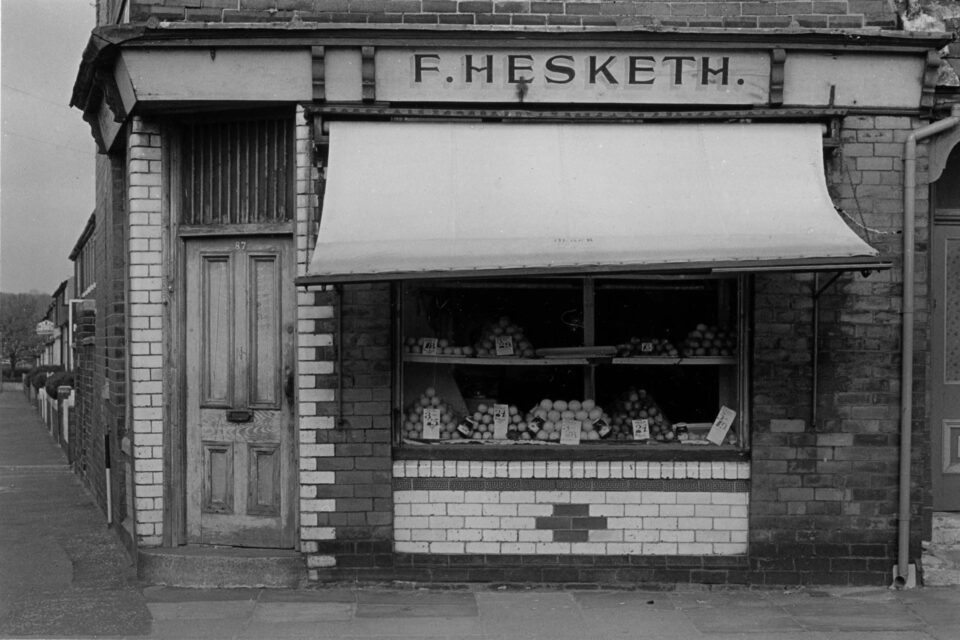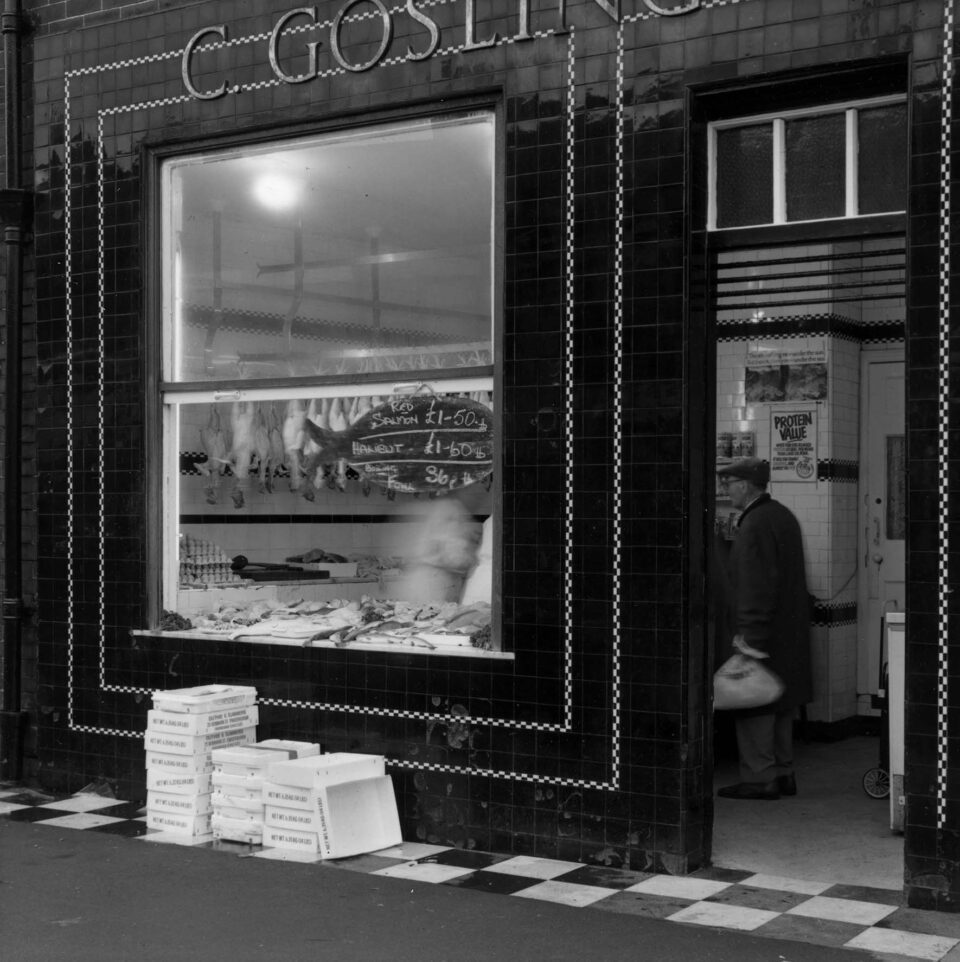Brian Lomas’ new book, Small Shops, invites us on a tour of a lost cityscape: a world of hand-daubed signage, antique cash registers and family-run businesses. The artist is a native of North Manchester, and, in the early 1980s, he travelled to locations around his home to photograph the last vestiges of a form of local economy under threat from the wrecking ball and the chain store.
There’s a sense of mystique wrapped up in these images, which is made more potent by the drawn-out story of their publication. Shot in black and white on a Rolleiflex camera when Lomas, now 65, was in his early 20s, they were shown in a couple of small exhibitions at the time, but mostly lay dormant in the photographer’s portfolio. Then, after almost four decades, they were revealed to the staff of Manchester’s Modernist Society, which has done much over the last few years to celebrate and preserve the architectural and design heritage of 20th century Britain.
At the time, Lomas’ other book, Unregarded, was already in the works with The Modernist’s press. A set of front-on monochrome images of industrial buildings around the outskirts of Manchester and further afield, the series was very much in the style of German conceptual artists Hilla and Bernd Becher, famous for their “typologies” of functional buildings. In Lomas’ work, almost all sense of perspective is flattened by the frontal viewing position, assuming a formal beauty, as if the buildings were minimalist sculptures.

Small Shops can be enjoyed without any awareness of the artist’s previous work, but many of his signature formal features– including a gentle monochrome colour palette and an unfussy, centred composition– help to give the sequence its charm. So too does the occasional punctuation of scenes with human and animal life: a dog loiters nonchalantly outside J. Travis’s butchers whilst a sale unfolds blurrily inside (Travis’s, Butcher, Drury Lane, Chadderton 1982); a barber’s hands are caught in motion mid-crew cut (Barber, Portland Street, Manchester 1982). These flashes of activity bring a sense of easy familiarity to the shots– whilst making clear that the humans and their grainy daily routines are objects of secondary attention. It is the spaces they inhabit and the markers they leave that arrests the photographer’s lens.
Lomas has pointed out in interviews accompanying the publication – which is coupled with an exhibition at the Modernist Society’s headquarters in Manchester – that the work does not glamourise the economic and social realities it depicts. “My uncle had a greengrocer’s,” he tells the Guardian, “and it was a hard life – 15-hour days, six days a week – so I don’t want to over-romanticise it.” Nor should we overlook the strangeness of encountering, at 40 years’ distance, such an ethnically homogenous image of a large British city. But one thing worth savouring is the evocation of a period of urban history when local high streets still bore traces of personality. Shop fronts marked Hesketh, Travis and Boardman; rudimentary window signs announcing special offers in block lettering. These details distil a sense of locale, serving as markers of family and regional identity.
These images evoke a time before the rootlessness of out-of-town and online shopping, and the new deprivations caused by casual and atomised labour: not a golden age by any means. Nonetheless, the knowledge that all of these businesses have long since disbanded, and many of the buildings have been torn down, gives the photographs undeniable poignancy. Small Shops evokes a lost time and place – executed with concentrated affection and minimum nostalgia.
Find out more about Small Shops and Unregarded.
The accompanying exhibition runs at the Modernist Society, Manchester until 28 August.
Words: Greg Thomas
All images courtesy Brian Lomas and The Modernist.
1. Gosling’s, Fishmonger, Moston, 1982
2. Travis’s, Butcher, Chadderton, 1982
3. Baxters and fish and chip shop, Moston Lane, Moston
4. Hesketh’s, Greenrocer, Moston, 1980
5. Barber, Portland Street, Manchester, 1982
6. Gosling’s, Fishmonger, Moston, 1982









